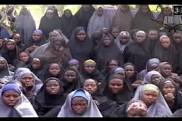
REALISING belatedly that it is at its wits’ end in the quest to liberate the Chibok schoolgirls from Boko Haram captivity, it seems Nigeria might finally be ready to embrace full-scale international assistance. A subtle hint of this came in Poland during the December 2018 United Nations Climate Change Conference. There, President Muhammadu Buhari cautiously sought “help from any country willing to assist” Nigeria in its endeavour to rescue the remaining pupils. The President’s admission is a welcome development.
Africa’s most populous country has been hit by the Boko Haram Islamist insurgency since 2009. The lowest moment was in April 2014 when the jihadists abducted 276 girls from a secondary school in Chibok, Borno State. Cavalierly, the Goodluck Jonathan administration wasted precious time before admitting that Boko Haram had stolen the girls. Thereafter, the insurgents captured 27 local government areas in Adamawa, Borno and Yobe states. Unlike other countries in such a dire situation, Nigeria has not attracted significant help from the international community in the war. Initially, France, the United States, the Netherlands, Britain, Australia and Israel had signalled their intention to help.
Puzzlingly, it failed to concretise the interest shown by world leaders in its plight. Michelle Obama, the former United States First Lady, and David Cameron, a former British Prime Minister, had lent their weight to the hashtag #BringBackOurGirls movement to secure the release of the girls, but the online campaign petered out.
Nigeria has also found it difficult to purchase the military hardware, equipment and the technology it requires to prosecute the war. Under Barack Obama, the US refused to sell aircraft and other equipment to Nigeria. In anger, government cancelled a training mission being carried out by the US Special Forces for Nigerian soldiers in 2014 because America reportedly persuaded Israel not to sell Cobra attack helicopters to Nigeria. In 2017, the US purportedly held up another deal for the sale of 12 fighter aircraft valued at $600 million.
The West blames its frosty relationship with Nigeria on the country’s alleged human rights abuses and excesses of its military. Consequently, Nigeria has been trying to acquire weapons through the back channels with mixed success. A desperate bid under Jonathan in 2014 set tongues wagging when South Africa seized a plane loaded with $9.3 million cash meant to buy arms through such an arrangement.
Conversely, the world leaps to the support of other countries experiencing terrorism. More than 40 world leaders, including Cameron and Israel’s Binyamin Netanyahu, gathered in Paris in solidarity with France shortly after the Charlie Hebdo attacks in January 2015 in which 12 people died. The West similarly responded fiercely when the Islamic State in Syria and Iraq seized swathes of territory measuring about 34,000 square miles in Syria and Iraq in 2014. According to the US Centre for Strategic and International Studies’ Middle East programme, the Syrian Democratic Forces received huge military assistance from the US, France, Britain and Turkey to prosecute the war. By 2018, the US-led coalition forces had regained the lost territories and reduced ISIS to a rump of rag tag fighters.
On assuming power in 2015, Buhari started on the right track by declaring the safe return of the girls as the top priority of his administration. Through negotiations, 21 girls were released in 2016. In 2017, 82 girls returned home from captivity. In return, the government freed five Boko Haram commanders. Aside from this, nothing more had come out of government’s efforts to reunite the remaining 113 girls with their loved ones until Buhari reopened the subject in Katowice during COP24.
Unfortunately, the gains the military initially made under Buhari are being reversed. This year, the extremists have successfully attacked military bases in the North-East, killing scores of soldiers at the 157 Task Force Battalion in Metele (Borno) and 81 Division Forward Brigade in Jilli (Yobe), among others. Borno State Governor, Kashim Shettima, estimates that the insurgency has resulted in the deaths of 100,000 Nigerians, with 2.6 million others internally displaced.
Buhari’s statement is an admission that Nigeria cannot defeat the fanatics or rescue the kidnapped girls on its own. But beyond the rhetoric, the President should painstakingly identify the countries willing to assist and knock directly on their doors. The Americans have made Niger Republic the regional base for counterterrorism and Buhari should make them a strategic partner for Nigeria to benefit from intelligence and the coveted technology against the insurgents. Through this, the Chibok girls will be located and rescued.
These girls have languished for too long in captivity. The President should make good his intention to seek international support for the Chibok girls, and Leah Sharibu, another schoolgirl abducted, along with 110 others, in Dapchi, Yobe State, in February 2018. This war has also gone on for too long: the military should launch fresh offensives against Boko Haram in their strongholds, release the captives, end attacks on military bases and secure the porous borders from Islamist invaders.
END

Be the first to comment